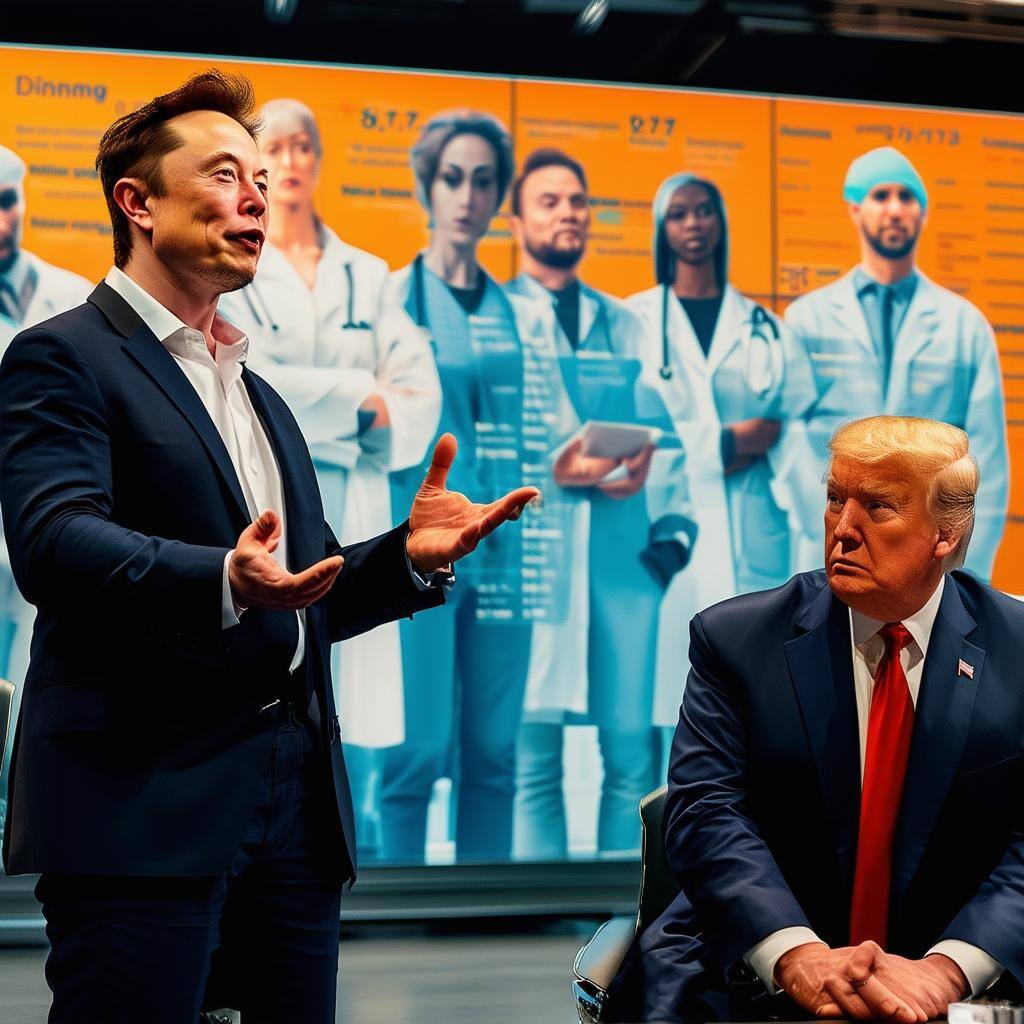Trump, Musk, and the Immigration Debate: Where Do We Stand?
Musk is Pushing for H-1B Expansion to Boost Innovation
The conversation around immigration and high-skilled labor is heating up again, and this time, it’s got some major players in the mix. Elon Musk and other tech leaders are making the case that the H-1B visa program is essential for American companies to access top-tier talent that may not be readily available in the U.S. workforce. Their argument? If the U.S. wants to stay ahead in innovation, expanding this program is a must.
But on the other side of the debate, MAGA hardliners are pushing for Trump to stay true to his promises of prioritizing American workers. They want tighter restrictions on immigration, making it harder for companies to hire foreign talent over U.S. citizens.
Trump’s recent comments on Saturday suggest that he’s open to the discussion—but the timing is interesting. Just a day earlier, Musk escalated the fight, saying he’s ready to go to “war” over the issue and even telling a critic to “go f— yourself.”
So, where does this leave us? Should the U.S. continue to welcome high-skilled immigrants to support innovation, or should it focus more on ensuring American workers are first in line for these jobs?
The Healthcare Staffing Crisis: A Wake-Up Call
For years, healthcare organizations have focused on cutting costs, often at the expense of workers, patient care, and overall industry stability. Now, with COVID-19 shaking the foundations of the healthcare system, we’re seeing the consequences of these choices play out in real-time.
With hospitals stretched thin, the U.S. government has stepped in with financial aid, funded by taxpayers. That raises a big question: Do these companies have a responsibility to prioritize American healthcare professionals? If taxpayer money is bailing them out, shouldn’t they be investing in the workforce that’s keeping the system afloat?
National Security vs. Economic Reality
There’s been a lot of talk about bringing jobs back to the U.S., especially in critical industries like pharmaceuticals. The argument is often about national security—we don’t want to be overly reliant on foreign supply chains. But doesn’t the same logic apply to healthcare?
If hospitals and healthcare companies are taking taxpayer-funded bailouts, shouldn’t they be hiring American workers first, rather than looking for cheaper labor elsewhere?
Of course, the situation isn’t black and white. Some companies have taken a more balanced approach—hiring locally where it makes sense while still maintaining a global workforce. But others have aggressively offshored jobs, even as they ask for government aid.
A Tale of Two Companies: The Right and Wrong Way to Handle Staffing
Take Company G, a global company with a significant presence in the U.S. Instead of just focusing on cost-cutting, they made a point to align their staffing with their revenue in each region. In other words, if they made a lot of money in the U.S., they prioritized hiring U.S. workers. This approach wasn’t perfect, but it was an attempt at ethical staffing that considered long-term stability.
Then there’s Company B, a U.S.-based organization that heavily relied on offshore labor to save costs. When the pandemic hit, they suddenly needed taxpayer-funded support to stay afloat. The irony? Even after getting help from the government, they continued shifting jobs overseas. It’s a double standard—taking American taxpayer money while sending jobs elsewhere.
The Bigger Issue: H-1B Visas and Worker Displacement
One of the most controversial issues in the labor debate is the H-1B visa program. While it was originally designed to help companies fill high-skilled positions when local talent wasn’t available, it’s also been abused—often by major IT firms that replace American workers with lower-cost H-1B contractors.
We’ve all heard the stories: U.S. workers forced to train their replacements, only to be let go afterward. And now, as these same companies lobby for even more H-1B visas, they’re also benefiting from American taxpayer-funded relief programs.
This raises an important ethical question: Should companies be allowed to expand foreign hiring while relying on government bailouts?
Finding a Middle Ground: Ethical Staffing for the Future
Let’s be real—bringing every job back to the U.S. isn’t practical. But blindly outsourcing jobs without considering the long-term consequences is just as reckless. The best path forward? A balanced approach.
Companies should be investing in the regions that support them. If a company benefits from American taxpayer dollars, it should be prioritizing American workers—especially in industries like healthcare, where staffing shortages have real-life consequences.
As we navigate these challenges, we need to ensure that our workforce—whether in healthcare, tech, or beyond—isn’t being sacrificed for short-term profits. Because at the end of the day, a sustainable workforce isn’t just about business. It’s about people.
What do you think? Should companies be held accountable for their hiring decisions if they receive government support? Or is globalization simply the reality of today’s economy?
Curt Spallone
Director - CompuRay




